In today's data-centric environment, organizations increasingly depend on analytics tools to inform their strategic decisions. However, many companies encounter challenges with their existing solutions, which may not adequately provide the insights necessary for effective decision-making. Common issues include unwieldy interfaces, insufficient reporting features, and slow data processing times, leading to frustration among users. As businesses expand and their data requirements become more complex, the drawbacks of relying on a single analytics tool can become evident.
Many users have expressed dissatisfaction with their current analytics platforms, often highlighting difficulties in generating actionable reports and a lack of support for real-time data analysis. This makes exploring alternatives essential. Selecting the right analytics tool can streamline operations, enhance decision-making capabilities, and ultimately lead to improved business outcomes. By the conclusion of this article, you will be equipped to assess your current analytics solutions and identify new options that better align with your needs.
Let’s explore the top Sisense alternatives available that can help you fully leverage your data’s potential.
Best for: Marketing professionals seeking robust attribution analytics.
Cometly is an advanced marketing attribution platform designed to optimize ad spend.

Cometly excels in capturing every touchpoint in the customer journey. This tool provides real-time insights into user interactions across multiple channels, making it easier for marketing teams to understand how different ads contribute to conversions. For example, a marketing team using Cometly can quickly identify which campaigns are driving revenue and adjust their strategies accordingly.
1. Multi-Touch Attribution: Cometly offers multi-touch attribution models that allow users to see how various marketing channels influence customer decisions over time.
2. Real-Time Tracking: The platform enables real-time tracking of customer interactions, ensuring that marketers have the most up-to-date data at their fingertips.
3. Automated Insights: Cometly's AI-driven recommendations help users identify high-performing ads, enabling them to scale campaigns confidently.
Cometly operates on a subscription model, which varies based on the features and level of service needed. Businesses can expect good ROI due to the depth of analysis provided, which can lead to improved marketing performance.
Cometly is tailored for marketing teams, especially those in larger organizations with complex ad strategies. Its focus on attribution analytics makes it an invaluable tool for understanding the true impact of marketing efforts.
Best for: Data visualization and business intelligence across multiple industries.
Tableau is a leading data visualization tool that helps organizations transform raw data into actionable insights.
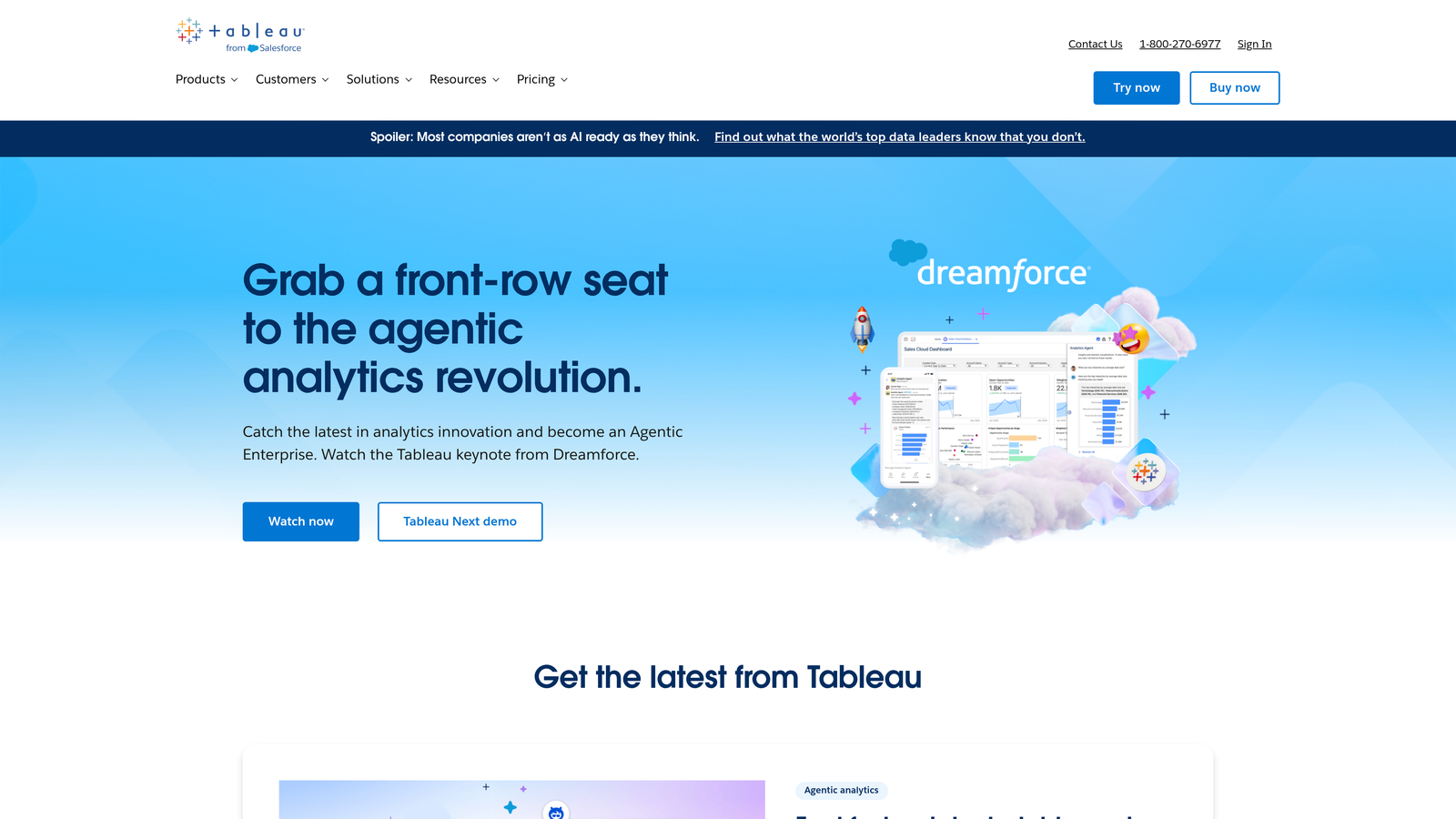
Tableau is renowned for its powerful visualization capabilities, allowing users to create interactive and shareable dashboards. This tool is ideal for businesses that need to present complex data in a digestible format. For instance, a retail business can use Tableau to visualize sales data across various regions, uncovering trends that drive strategic decisions.
1. Drag-and-Drop Interface: Tableau’s intuitive drag-and-drop interface simplifies the process of creating visualizations, making it accessible for non-technical users.
2. Data Blending: Users can blend multiple data sources seamlessly, allowing for comprehensive analysis across different datasets.
3. Collaboration Tools: Tableau facilitates collaboration by enabling teams to share dashboards and insights across the organization easily.
Tableau offers a variety of pricing plans, including a free trial for new users. While it can be more expensive than some alternatives, its robust capabilities often justify the investment, especially for businesses that prioritize data-driven decision-making.
Tableau is suitable for organizations in various sectors, from finance to healthcare, due to its versatility and powerful analytics features. It’s particularly beneficial for teams looking to enhance their data storytelling capabilities.
Best for: Businesses seeking a cost-effective solution for data analysis and visualization.
Power BI is a suite of business analytics tools that helps users visualize data and share insights across their organization.

Power BI is known for its integration with Microsoft products, making it an excellent choice for organizations that rely on the Microsoft ecosystem. This tool allows users to create detailed reports and dashboards from various data sources, streamlining the reporting process.
1. Integration with Microsoft Tools: Seamless integration with tools like Excel and Azure enhances data accessibility and usability.
2. Custom Visualizations: Users can create custom visualizations to better represent their data in a way that fits their needs.
3. Robust Data Modeling: Power BI allows users to build complex data models, enabling deeper insights into their data.
Power BI offers a free version with limited features, while the Pro version is competitively priced, making it accessible for small to medium-sized businesses. Its cost-effectiveness combined with powerful features makes it a popular choice.
Power BI is particularly appealing for businesses that are looking for a high-quality analytics tool without a hefty price tag. Its ease of use and strong integration capabilities also make it a favorite among teams already using Microsoft products.
Best for: Organizations needing advanced data exploration capabilities.
Looker is a data platform that allows businesses to explore, analyze, and share real-time business analytics.
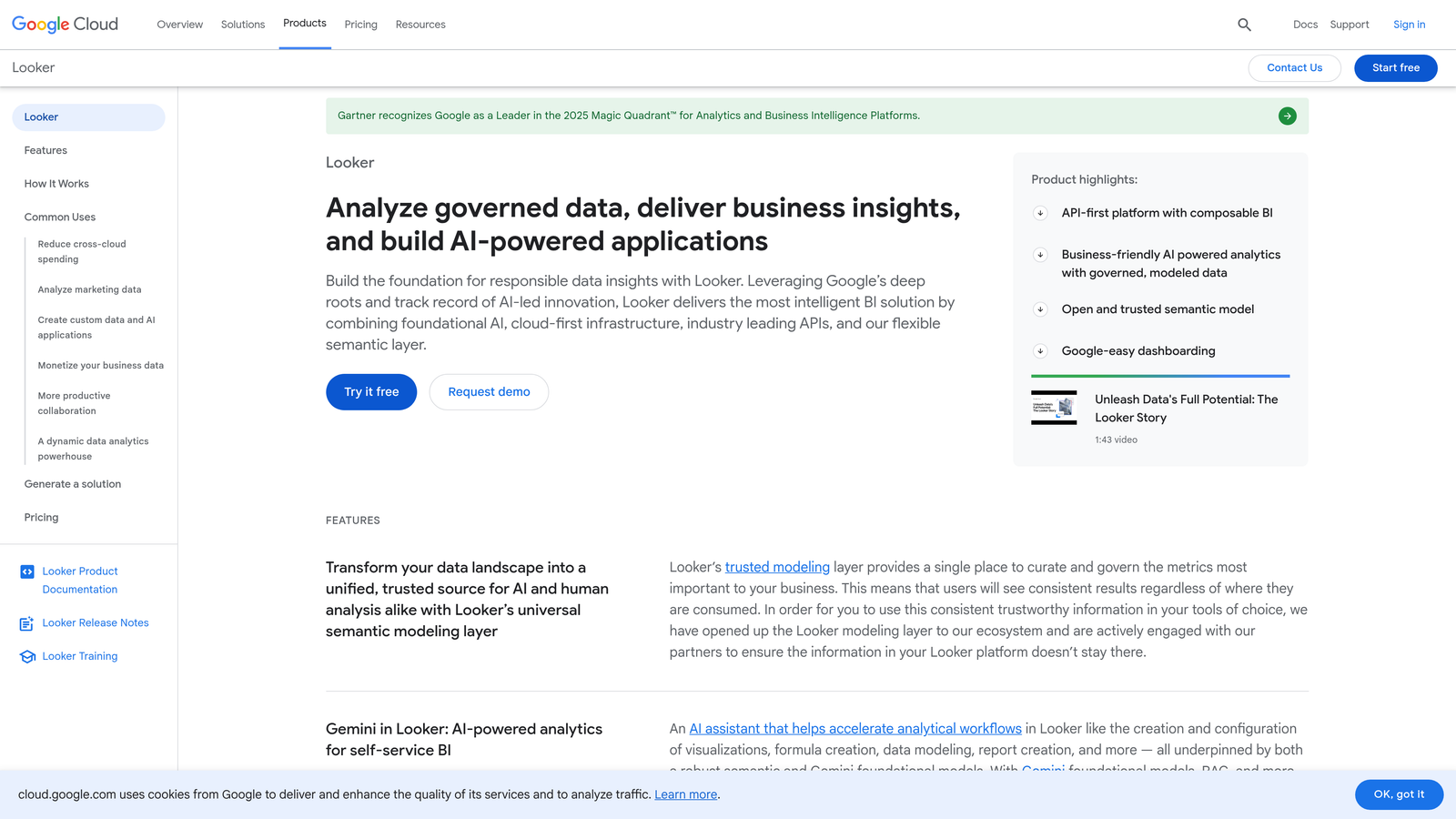
Looker is designed for organizations that require deep data exploration capabilities. Its unique modeling language, LookML, allows users to create custom data models that can be reused across the organization. For example, a tech company can tailor their data models to fit specific analytics requirements, ensuring consistent reporting across different departments.
1. Custom Data Models: LookML enables users to define data relationships and calculations that suit their specific business needs.
2. Real-Time Data Exploration: Users can query data in real-time, making it easier to make data-driven decisions on the fly.
3. Integration with Other Tools: Looker can connect with various databases and applications, enhancing its utility across different platforms.
Looker’s pricing is based on usage, making it a flexible option for businesses varying in size and data needs. The value derived from its advanced capabilities often outweighs the costs for organizations that rely heavily on data analytics.
Looker is ideal for companies that need to leverage complex data for strategic insights. Its robust capabilities make it a strong contender for organizations looking to enhance their analytics strategy.
Best for: Companies looking for an all-in-one business intelligence tool.
Domo is a cloud-based business intelligence platform that provides a comprehensive view of a company’s data.
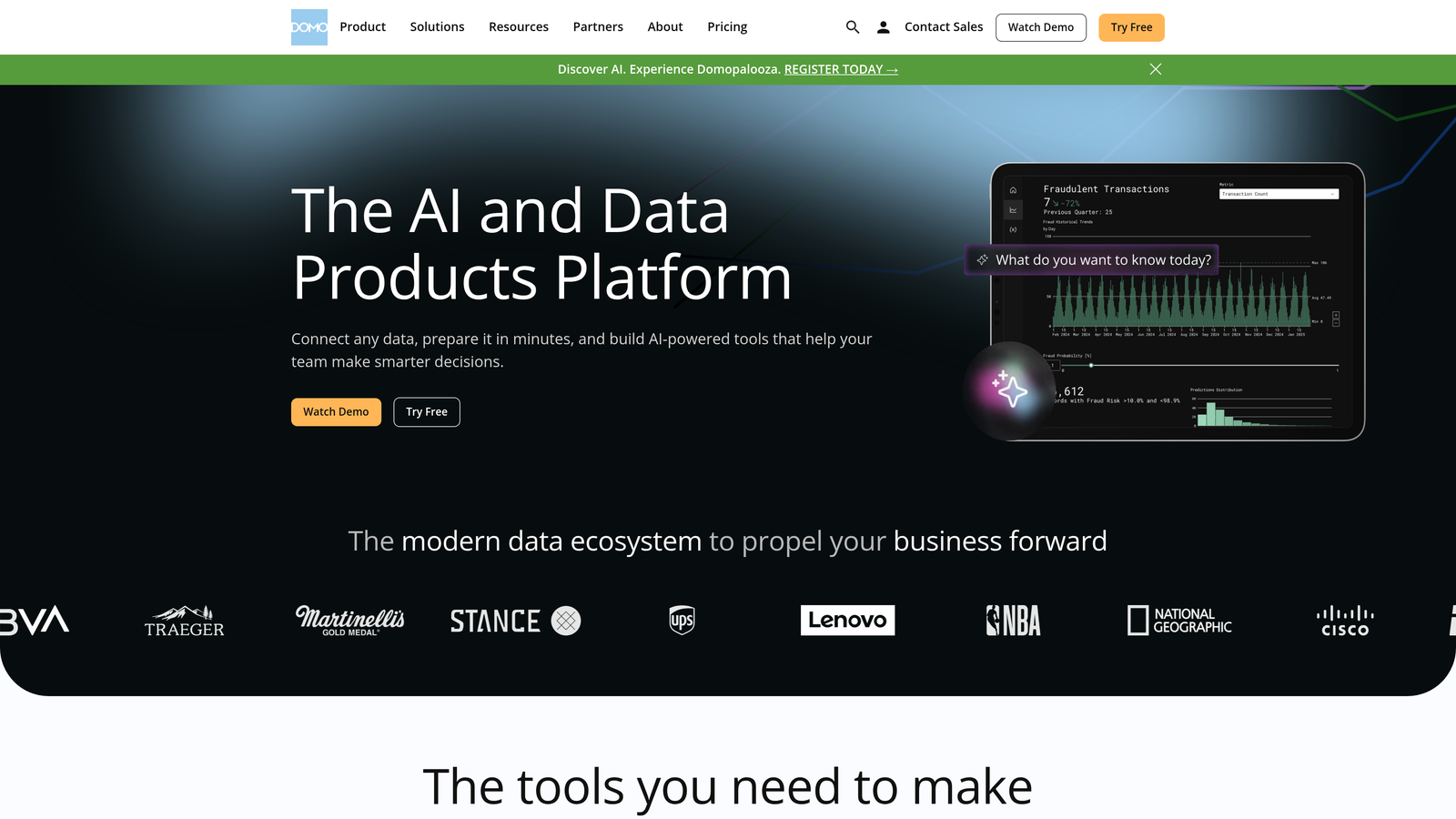
Domo stands out for its ability to consolidate data from various sources into a single platform, providing a holistic view of business performance. This feature is particularly useful for organizations with multiple data streams, as it allows for easy monitoring and reporting. For instance, a retail chain can integrate sales, inventory, and marketing data into Domo to get a complete picture of its operations.
1. Data Integration: Domo can connect to various data sources, including spreadsheets, databases, and cloud services, ensuring that all relevant data is accounted for.
2. Custom Dashboards: Users can create custom dashboards that reflect the metrics most important to their business, enhancing visibility into performance.
3. Collaboration Features: Domo enables teams to collaborate in real-time, sharing insights and making data-driven decisions quickly.
Domo operates on a subscription model, with pricing based on the number of users and data sources integrated. While it may be on the pricier side, the comprehensive features and ease of use can justify the investment, especially for larger organizations.
Domo is particularly beneficial for large companies that require a centralized platform for their business intelligence needs. Its ability to streamline data from various sources into one cohesive view is invaluable for effective decision-making.
Best for: Professionals seeking a self-service analytics tool.
Qlik Sense is a self-service data analytics platform that empowers users to make data-driven decisions.
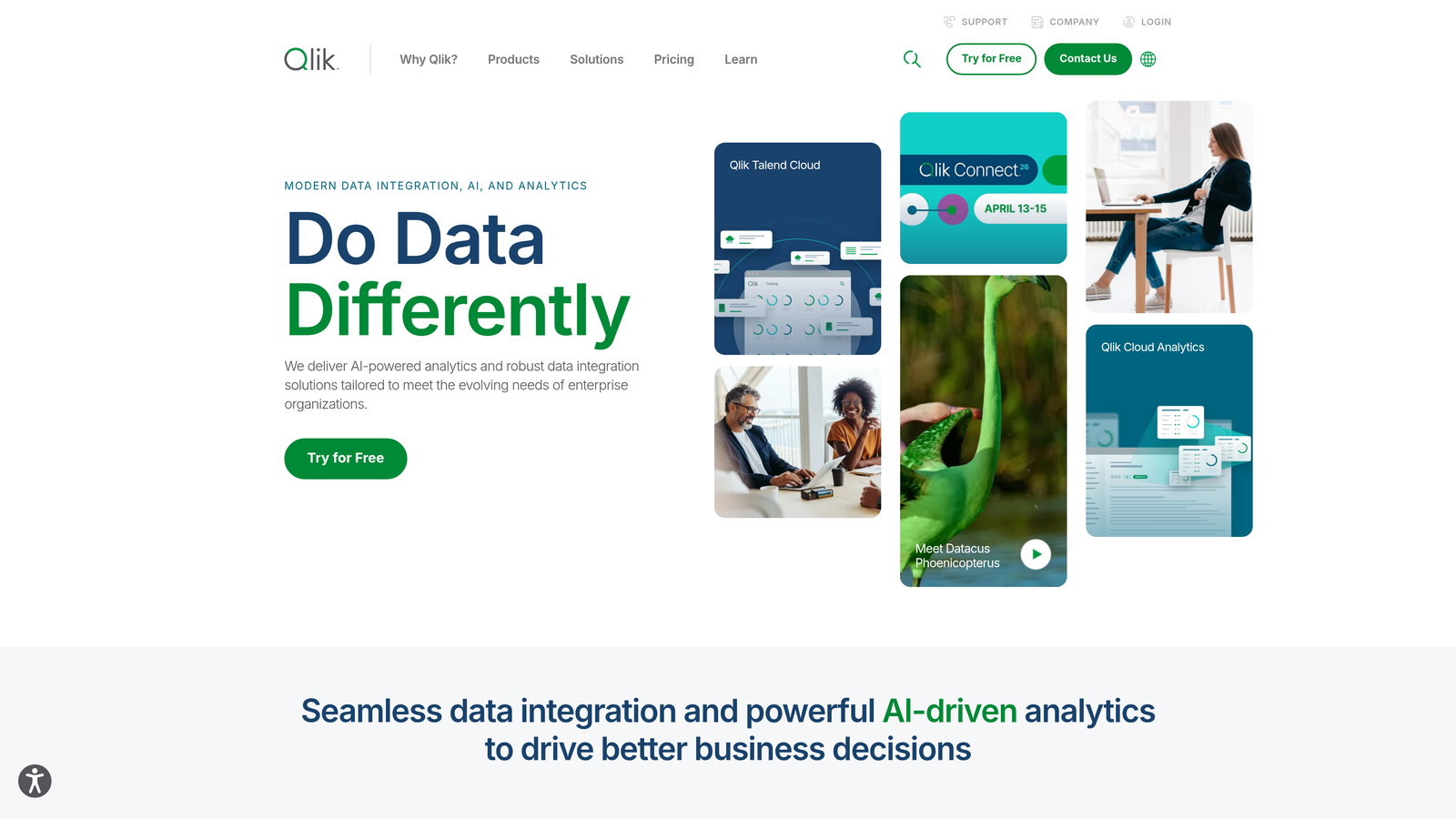
Qlik Sense excels in its associative data model, which allows users to explore data relationships freely. This model enables users to uncover insights that might be missed in traditional query-based tools. For example, a finance team can easily identify trends and correlations across different datasets without needing complex queries.
1. Associative Model: Users can explore data freely without being constrained by predefined queries, facilitating deeper insights.
2. Smart Search: Qlik Sense includes a smart search feature that allows users to find data quickly and intuitively.
3. Collaboration Tools: The platform also supports collaboration, enabling teams to share insights seamlessly.
Qlik Sense offers flexible pricing plans, catering to both small businesses and large enterprises. Its self-service capabilities can lead to significant cost savings by reducing reliance on IT for reporting and analytics.
Qlik Sense is designed for users who want to take charge of their data analysis. Its intuitive interface and powerful capabilities make it a favorite among business users looking for self-service solutions.
Best for: Organizations that need a free, flexible reporting solution.
Google Data Studio is a free tool that allows users to create customizable reports and dashboards.
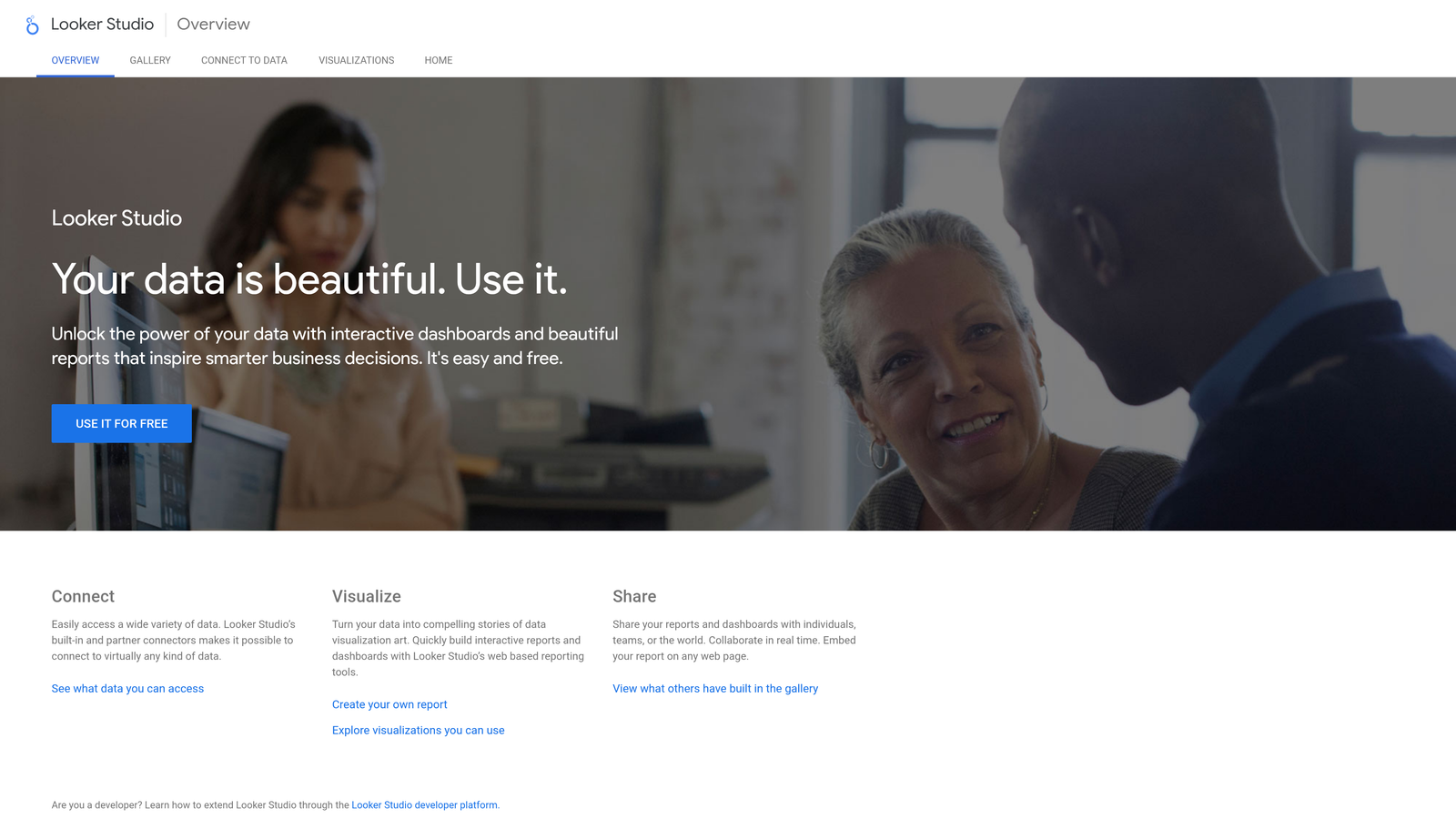
Google Data Studio is highly regarded for its accessibility as a free tool that integrates smoothly with other Google services. This makes it an excellent choice for businesses that already use Google Analytics, Google Ads, and other Google products. For example, a small business can use Google Data Studio to create comprehensive reports that visualize their marketing performance without incurring additional costs.
1. Customizable Dashboards: Users can create highly customizable dashboards that display metrics and KPIs relevant to their business.
2. Integration with Google Products: Seamless integration with Google Analytics and other Google tools enhances its utility.
3. Collaboration Features: Teams can collaborate on reports in real-time, making it easy to share insights and updates.
Google Data Studio is free to use, making it an attractive option for businesses looking for a budget-friendly reporting tool. Its flexibility and ease of use make it a great entry point for organizations new to data analytics.
Google Data Studio is perfect for small businesses that need effective reporting without the financial burden of expensive tools. Its free access and robust features make it a valuable asset for teams looking to leverage data insights.
Best for: Enterprises seeking comprehensive business intelligence solutions.
IBM Cognos Analytics is an enterprise-level business intelligence tool that provides a full suite of analytics capabilities.
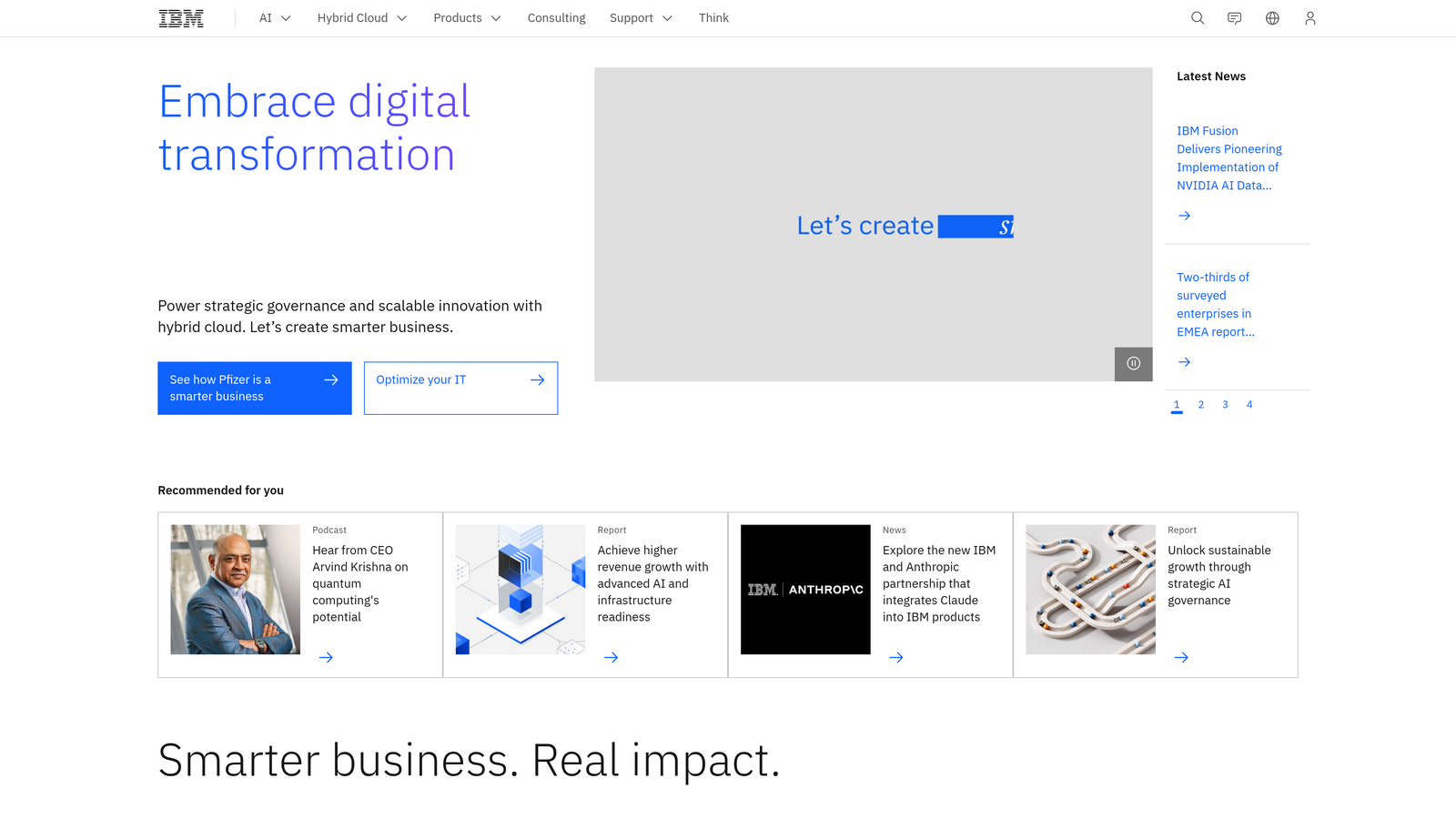
IBM Cognos is known for its robust reporting and dashboarding capabilities, making it a favorite among large organizations that require detailed analytics. Its ability to integrate various data sources into a single view aids in comprehensive analysis. For instance, an enterprise could use Cognos to pull data from multiple departments, allowing for a consolidated view of performance metrics.
1. Comprehensive Reporting: IBM Cognos provides extensive reporting features that cater to the complex needs of enterprise users.
2. AI-Driven Insights: The platform leverages AI to provide users with actionable insights and recommendations based on data analysis.
3. Data Governance: Strong data governance features ensure that users can trust the data being analyzed and reported.
IBM Cognos typically requires a significant investment, making it more suitable for larger enterprises with dedicated analytics budgets. The comprehensive features offered can lead to significant insights that justify the cost.
IBM Cognos is designed for large organizations that require a powerful, comprehensive business intelligence solution. Its robust capabilities make it an excellent choice for businesses with complex data needs.
Best for: Organizations needing integrated business planning and analytics.
SAP Analytics Cloud combines business intelligence, augmented analytics, and enterprise planning in one platform.
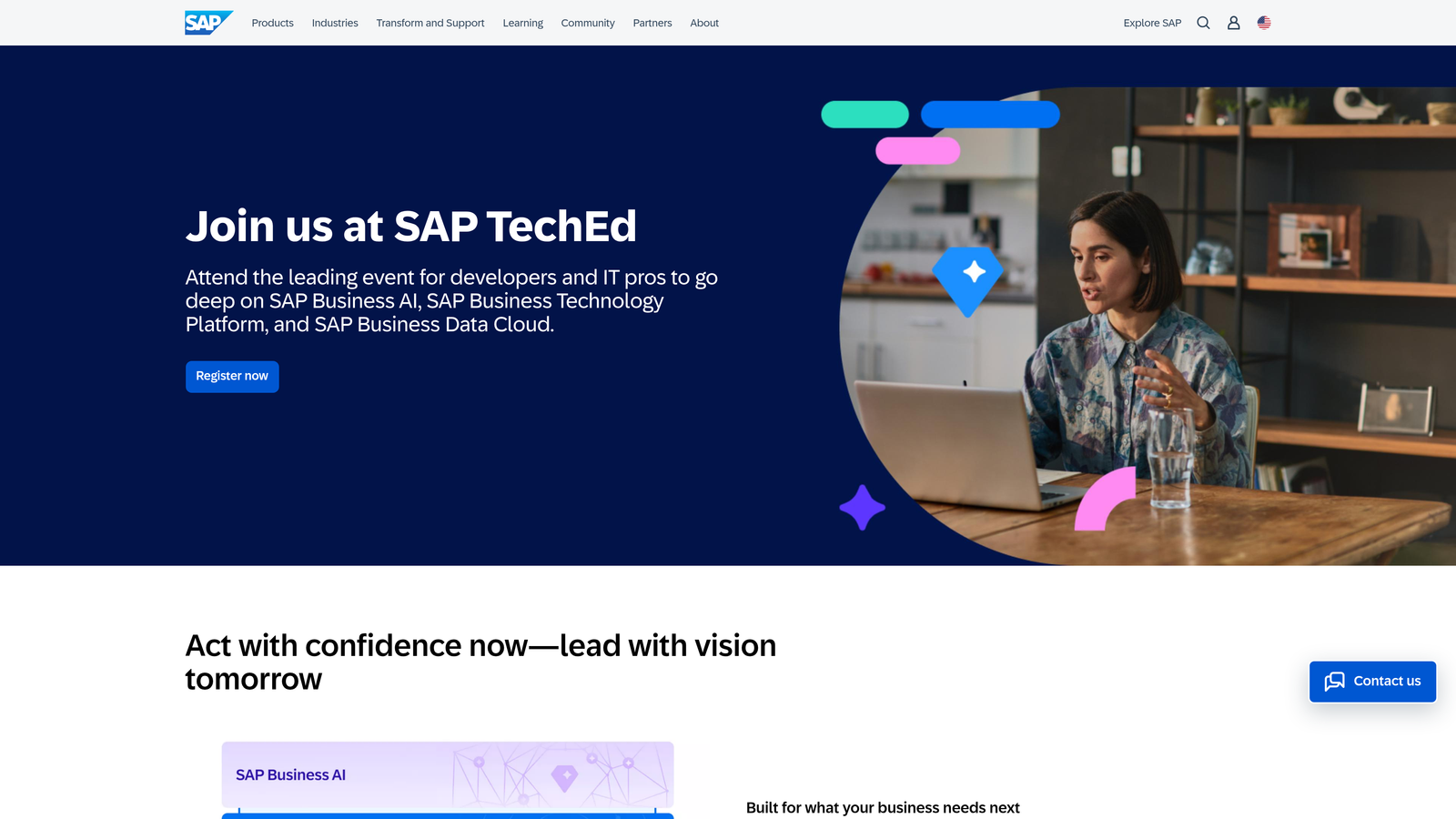
SAP Analytics Cloud is ideal for organizations looking for a holistic approach to data analysis and planning. Its integration of BI and planning features allows users to analyze data while also considering financial and operational goals. For example, a manufacturing company could use SAP Analytics to align its production planning with sales forecasts, enhancing overall efficiency.
1. Integrated Planning: SAP combines analytics with business planning, enabling users to make informed decisions based on comprehensive data analysis.
2. Augmented Analytics: AI-driven features help users discover insights and trends within their data more efficiently.
3. Collaboration Tools: The platform includes tools that facilitate collaboration among teams, ensuring that everyone is aligned on business objectives.
SAP Analytics Cloud operates on a subscription model, with pricing based on usage and features. While it may require a larger investment, the combination of analytics and planning capabilities offers significant value for organizations looking to streamline operations.
SAP Analytics Cloud is perfect for organizations that need a unified platform for both analytics and planning. Its ability to integrate these functions helps businesses align their strategies and operational goals more effectively.
Best for: Businesses seeking an all-in-one marketing, sales, and service platform.
HubSpot is a comprehensive platform that combines marketing, sales, and customer service tools, making it ideal for organizations looking to streamline their operations.
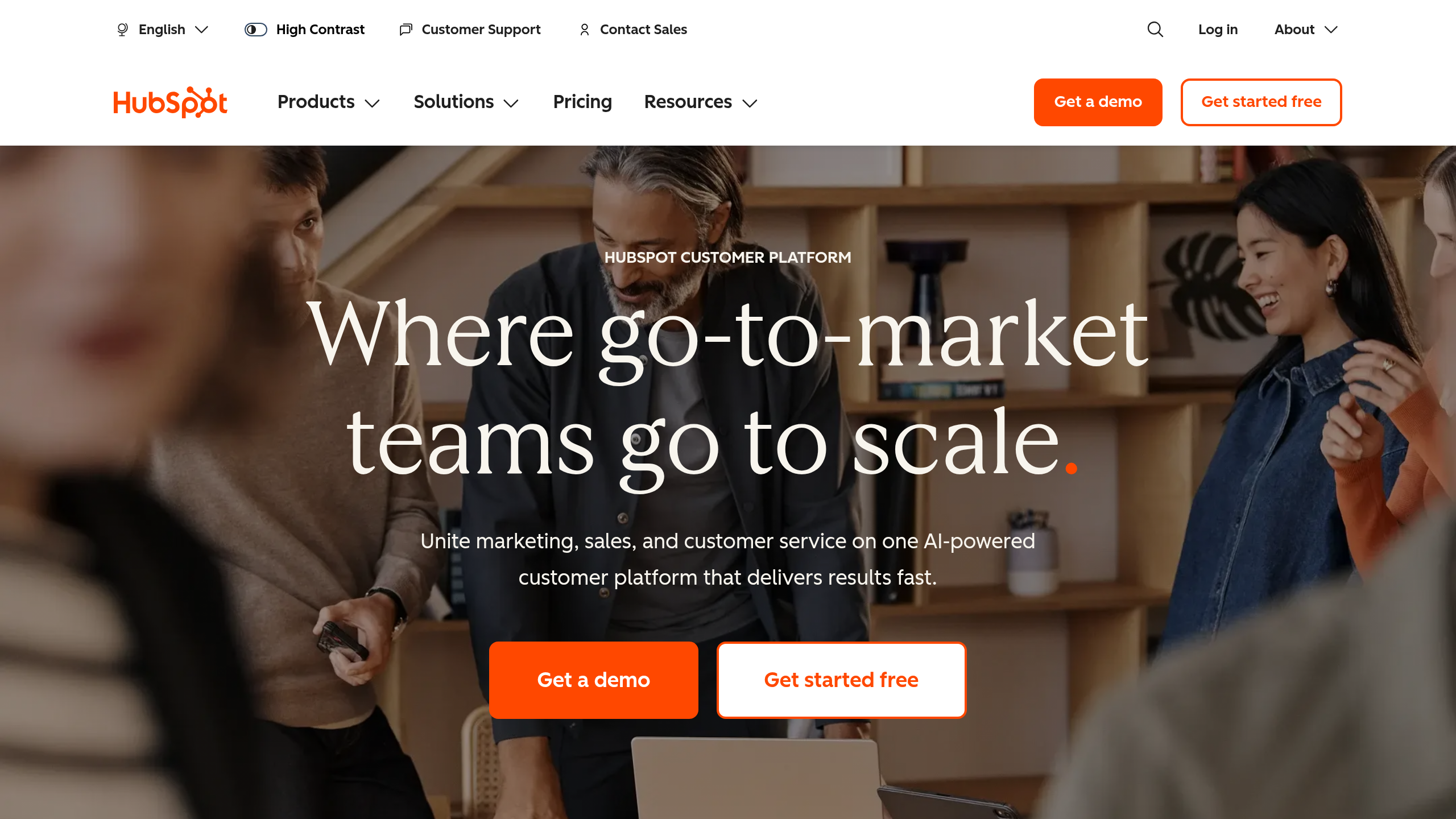
HubSpot is known for its user-friendly interface and robust features that cater to various business needs. It allows companies to manage their customer relationships effectively while providing insights into marketing performance. For instance, a business using HubSpot can track customer interactions, analyze marketing campaigns, and optimize sales processes all in one place.
1. CRM Integration: HubSpot's built-in CRM enables users to manage customer relationships and track interactions seamlessly.
2. Marketing Automation: The platform offers marketing automation tools that help businesses nurture leads and streamline their marketing efforts.
3. Analytics & Reporting: HubSpot provides detailed analytics and reporting features, allowing users to measure the effectiveness of their marketing campaigns and sales strategies.
HubSpot operates on a freemium model, offering a free tier with essential features and paid plans that provide advanced capabilities. This pricing structure makes it accessible for small businesses while providing scalability for larger organizations as their needs grow.
HubSpot is particularly beneficial for businesses that want an integrated solution to manage their marketing, sales, and customer service efforts. Its comprehensive capabilities help teams work more efficiently, leading to improved customer satisfaction and business growth.
Choosing the right analytics tool is crucial for maximizing the value of your data. Whether you’re looking for a specialized tool like Cometly for
Ready to elevate your marketing game with precision and confidence? Discover how Cometly's AI-driven recommendations can transform your ad strategy—Get your free demo today and start capturing every touchpoint to maximize your conversions.
Learn how Cometly can help you pinpoint channels driving revenue.
.svg)
Network with the top performance marketers in the industry